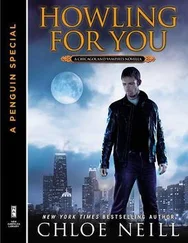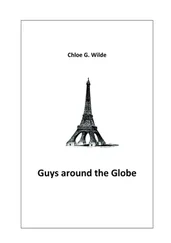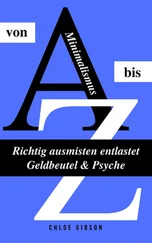Thursday was especially relentless. From room to room, post to post, a weary transference of grey as my colleagues and I released ourselves from one position and slipped into the next, rooms chairs thresholds, thresholds chairs rooms, as we carried out our silent musical-chairs rotation.
At half past four, time seemed to decelerate to an unbearable pace. Rotation didn’t solve anything. In each room the minutes got caught in the same thick transparent gel. Searching for signs of movement, I studied the visitors. A hunched man in his seventies wearing trainers and a plastic rose ring — a retired actor perhaps, or a famous painter, or a tourist from Miami. A woman with cropped black hair and bright red glasses who kept checking her watch as if about to run off. A fat man with his shirt hanging out of his trousers, who seemed perpetually short of breath, stopping to pant in front of every painting. It was often tempting, and all too easy, to transfer a bad mood on to others — all I had to do was go up and scold someone for standing too close to a painting when they’d been keeping a respectful distance and then ignore their protests. I considered approaching the woman in red glasses just for some variety but she left before I had the chance.
A couple walked in and went to stand in front of paintings at opposite ends of the room. They moved counterclockwise, overlapping only once at a painting in the centre, and finished at the same time, then floated silently into the next room. Not long afterwards another couple, far less silent, the man pontificating without breaks, entered and exited the room, leaving behind a different kind of mood.
Two young Italians, one in a wheelchair, appeared, speaking loudly. One could tell they were brothers, they had the same forehead, the same curly dark hair, the same pitchy eyes, but the one in the wheelchair had a larger, more distinctive nose and was therefore more handsome. Each time his brother wheeled him before a painting he would crane his neck and try to make himself higher, a casualty, along with children and small people, of the established dictates of museum height. Yet his brother kept pointing at things from an angle that ignored the constraints by which his sibling was bound. Each time he pointed, the other one strained to see, and I fought the urge to walk over and gently intervene by perhaps suggesting one brother hold the other up to what he wanted to show him rather than futilely point it out, but instead I kept still, tapping my foot once or twice.
A large group entered next, a flock of tourists straggling behind one of our so-called educators in a tour organised by the Gallery. I stood up from my chair, straightened my tie and aimed at total verticality, feet parallel and back columned with wall, and waited to see whether my efforts would be acknowledged. But not once, as the guide began waxing on and on about the ‘unequivocal musicality’ of a certain painting, did he so much as glance in my direction. I knew he had seen me — after years of working at the same place, the wiles of others were familiar — and that afternoon he went as far as to comment on the female gallery assistants, so drab amidst the mythological women around them. A few visitors looked timidly in my direction but most were kind enough to ignore his attempt at humour.
Guy Mount had been tour guide for nearly as long as I’d worked there but we only occasionally, luckily, crossed paths. He drew a clear and unconcealed distinction within the staff and looked upon us security folk with disdain, his rust-coloured eyes peering down from his educated heights, oblivious to the sophisticated thoughts that might, just might, be flowing through even our minds every now and then. He was the sort of person who said nasty things with a smile.
Every institution has its visible side and its invisible one, and our Gallery was no different. We guards inhabited both realms, occupying backstage and front, though more the front, and the Gallery’s image depended on us. Curators and directors meanwhile remained behind the scenes, dispatching important decisions from somewhere below. Guides were a third category in between. They felt superior to us yet inferior to the curators, and moved freely between above and below, deferential towards those who knew more, terse with those they assumed knew less. Most of them were cordial. Except for Guy Mount.
And each time we overlapped in a room, my ears were forced to listen as he raised and lowered his voice, especially loud when he sensed the visitors’ excitement, then down once he had their attention, then up again the moment he caught sight of someone drifting, then down once he had them back. That day his voice seemed to issue from somewhere beyond, as if he were speaking through many characters at once, a deck of worn, greasy cards in which the top one acted as mouthpiece for those stacked beneath.
I sensed a current travelling up my right arm, electricity waiting to short-circuit and run amok, and I struggled to contain my anger, forcing a smile when two completely disoriented teens came up to ask after the room with the Hogarths. Something like heartburn flared up at the centre of my chest. An animal was awakening, cracking its joints and flexing its claws. Yet by some magical force, or perhaps simply through channelling Ted, for he would’ve resisted confrontation and accepted his position within the hierarchy, I managed to contain myself.
What they failed to ask at my job interview nine years ago was whether I ever entertained violent thoughts, to which I would reply, today, Yes, all the time, and more so with every passing hour . How not to occasionally envision the Gallery as a great locus of violent acts, a potential arena of destruction at both the paint layer and the human?
When I went to stand in front of Venus my eyes could only focus on the network of cracks, a shawl of time draped over her shoulders and running down her back, the paint thinned under so many gazes, especially male, the heaviest gaze of all.
As if to prove my point, a middle-aged man entered the room and came to stand in front of her, his oily pink face full of rapture. I withdrew to my post, a vanishing act in my grey uniform. After a few minutes of gaping he extricated himself from the spell and moved on, falling captive, before long, to another two-dimensional figure; even the most beautiful things, I loved to remind myself, carry out a limited conquest of space.
During my final shift I experienced yet more pulses of anger, the kind I have for the first day or two each time I quit smoking, when two girls entered the room laughing. One of them was punching things into her phone as she walked. If there was one thing I hated it was gadgetry, especially in the museum, and though the tiny plastic keys hardly made noise they always seemed loud to me. I bit my bottom lip as the girl stopped in front of me, ignoring my presence to the point that her right foot was nearly stepping on mine, and pressed a few keys. I was taller so could look straight down at the phone in her hand and see what she was typing. As far as I could tell, she’d composed one message, sent it off, and was now starting another. She ran through her list of contacts, her little fingers impatiently kneading the pad, and started yet another text. Grab the object and toss it across the room, I thought to myself, watch the screen crack into lightning bolts.
And then, like some kind of biblical release, a wonderfully familiar tune at a quarter to six: the jangling of keys. Just as on every other afternoon at a quarter to six, my colleague Henry came ambling through the rooms, hinting to visitors that soon our tiny kingdom would close. He jangled them loudly as he walked, indulging in his favourite moment of the day, when the sun set on our museum and everyone, native and from overseas, was ushered towards the door. There were always one or two individuals who hung back until the last possible minute, to buy the final postcard or see that final painting, and Henry would remind them they could return tomorrow but the reply never varied: they had an early plane or train to catch, this was their very last evening in London, they couldn’t leave until, until, until…
Читать дальше












